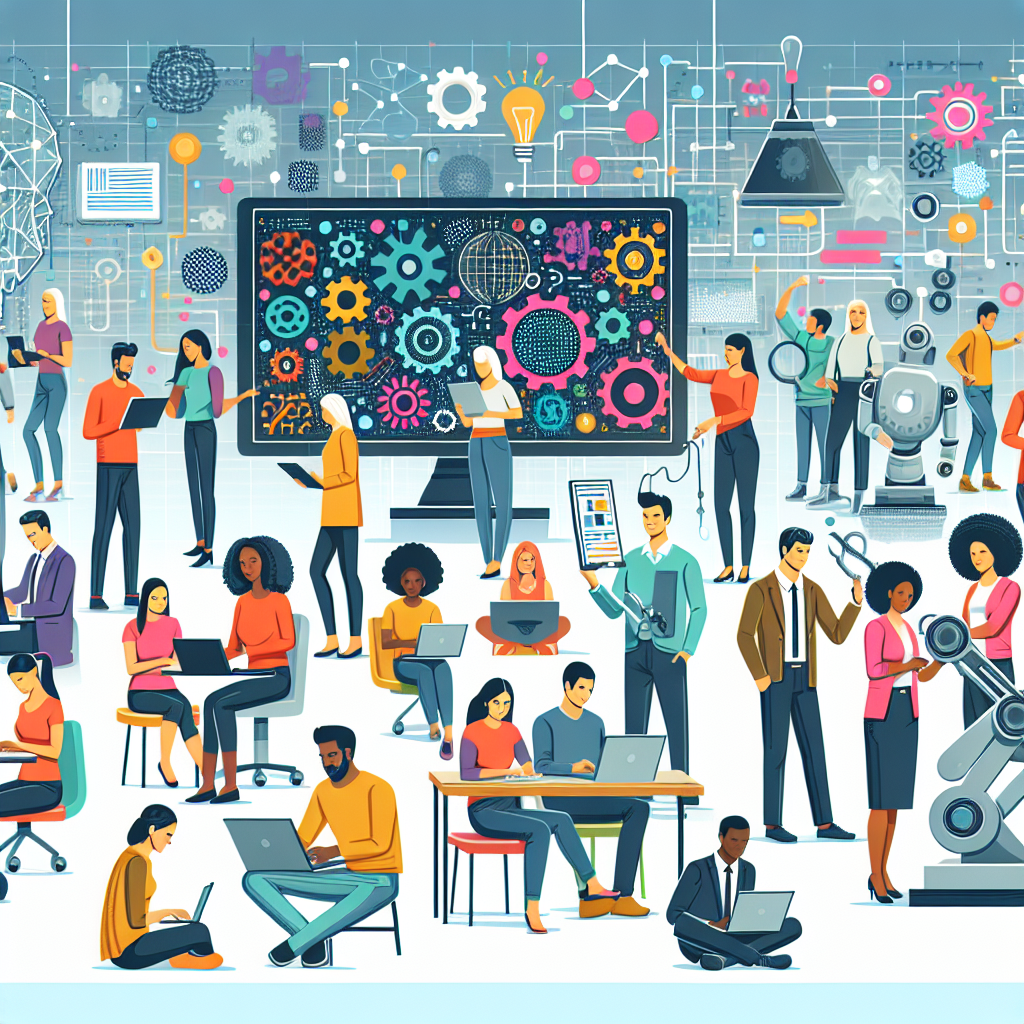AI for All: The Rise of Democratized Tech
Artificial Intelligence (AI) has quickly become one of the most transformative technologies of our time, with the potential to revolutionize industries, improve efficiencies, and enhance our daily lives. However, the accessibility and democratization of AI have been a major concern for many, as the technology has been predominantly controlled by a few tech giants and corporations.
Fortunately, the tide is turning, and AI is becoming more democratized, allowing individuals and smaller organizations to leverage the power of AI for their own benefit. This shift towards democratized tech is opening up new opportunities and possibilities for innovation, creativity, and economic growth.
The democratization of AI is being driven by several key factors, including advancements in AI technologies, the rise of open-source AI tools and platforms, and the increasing demand for AI skills in the workforce. As a result, AI is no longer the exclusive domain of big tech companies – it is now accessible to anyone with the desire to learn and the determination to succeed.
Advancements in AI technologies have made it easier for individuals and organizations to develop and deploy AI solutions. Cloud computing services, such as Amazon Web Services, Microsoft Azure, and Google Cloud Platform, provide affordable and scalable AI infrastructure that can be accessed by anyone with an internet connection. In addition, the development of AI frameworks and libraries, such as TensorFlow, PyTorch, and scikit-learn, have made it easier for developers to build AI models without the need for extensive expertise in AI algorithms and techniques.
The rise of open-source AI tools and platforms has also played a significant role in democratizing AI. Open-source projects, such as OpenAI, TensorFlow, and Apache Spark, provide free access to AI resources, libraries, and tools, allowing developers to collaborate, share knowledge, and build on each other’s work. This open and collaborative approach to AI development has led to the rapid advancement of AI technologies and the proliferation of AI applications across a wide range of industries.
The increasing demand for AI skills in the workforce has further fueled the democratization of AI. As businesses seek to leverage AI to gain a competitive edge, there is a growing need for AI talent with the skills and expertise to develop, deploy, and manage AI solutions. This demand has led to the emergence of AI bootcamps, online courses, and training programs that provide individuals with the knowledge and skills needed to succeed in the field of AI.
The democratization of AI is not without its challenges, however. One of the main concerns is the potential for bias and discrimination in AI algorithms, which can have serious consequences for individuals and society as a whole. To address this issue, it is important for developers to be mindful of bias in their AI models and to take steps to ensure that their algorithms are fair, transparent, and accountable.
Another challenge is the ethical use of AI, particularly in areas such as surveillance, data privacy, and autonomous weapons. As AI becomes more widespread and powerful, there is a need for clear guidelines and regulations to govern its use and prevent potential abuses. It is essential for policymakers, industry leaders, and the public to work together to establish ethical standards and best practices for the development and deployment of AI technologies.
Despite these challenges, the democratization of AI holds great promise for the future. By making AI more accessible and inclusive, we can empower individuals and organizations to harness the full potential of AI and drive innovation, economic growth, and social progress. With the right tools, skills, and mindset, anyone can become a part of the AI revolution and contribute to shaping a better future for all.
FAQs:
Q: What is democratized tech?
A: Democratized tech refers to the trend towards making technology more accessible, inclusive, and affordable for individuals and organizations of all sizes. This includes the democratization of AI, which allows anyone with the desire to learn and the determination to succeed to leverage the power of AI for their own benefit.
Q: How can I get started with AI?
A: There are many resources available for individuals who are interested in learning more about AI. Online courses, AI bootcamps, and training programs can provide you with the knowledge and skills needed to develop, deploy, and manage AI solutions. In addition, open-source AI tools and platforms, such as TensorFlow and PyTorch, can help you get started with building AI models.
Q: What are the benefits of democratized tech?
A: Democratized tech can empower individuals and organizations to harness the full potential of technology, drive innovation, and create economic opportunities. By making technology more accessible and inclusive, we can level the playing field and ensure that everyone has the opportunity to succeed in the digital age.
Q: What are the challenges of democratized tech?
A: One of the main challenges of democratized tech is the potential for bias and discrimination in AI algorithms. It is important for developers to be mindful of bias in their AI models and to take steps to ensure that their algorithms are fair, transparent, and accountable. Additionally, the ethical use of AI is a concern, particularly in areas such as surveillance, data privacy, and autonomous weapons. It is essential for policymakers, industry leaders, and the public to work together to establish ethical standards and best practices for the development and deployment of AI technologies.

